Cambodia election: Asia’s longest-serving leader Hun Sen set for another landslide win in ‘farce’ vote
Cambodia’s long-time prime minister and Asia’s longest-serving leader Hun Sen is set to win the country’s general election in a landslide victory described as a farce by critics given the effective lack of any opposition.
Cambodians went to the polls on Sunday with few choices but to vote for the 70-year-old’s ruling Cambodian People’s Party (CPP), with even the act of spoiling the ballot outlawed.
The only party representing a credible challenge to the CPP was barred from participating in the elections, and over the last week several leading opposition figures were also arrested.
It means Hun Sen is all but certain to consolidate his power over the country of around 16 million people that he has ruled for the last 38 years.
A spokesperson for the CPP declared victory shortly after polling stations closed on Sunday evening, seemingly not waiting for a count. “We’ve won in a landslide... but we can’t calculate the number of seats yet,” said Sok Eysan.
Hun Sen wrote in a message on Telegram that turnout had been 84 per cent, describing it as a rejection of calls for a boycott of the election. He also threatened those who spoiled ballots with “legal consequences” if they did not turn themselves in, telling them not to try and flee abroad.
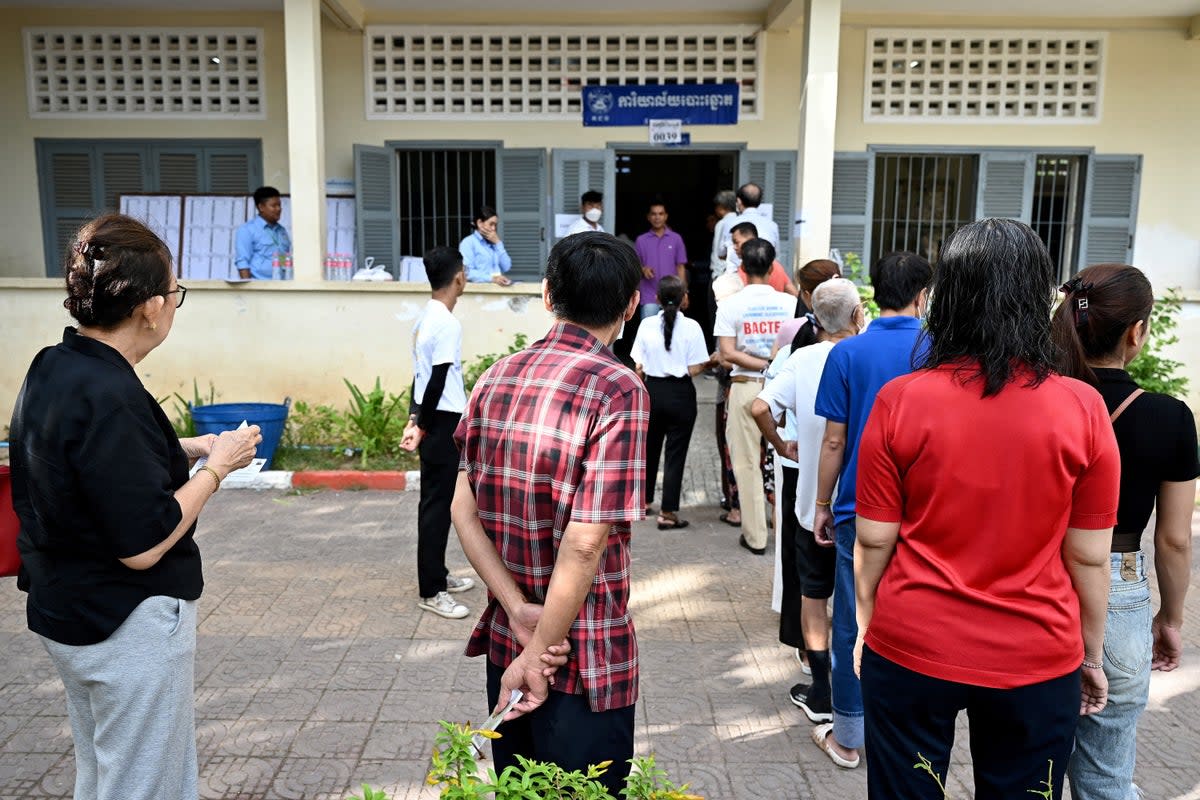
The US, European Union, and other Western countries had refused to send officials to observe the election, saying there was no chance it could be considered free and fair.
The human rights situation in Cambodia has deteriorated severely since the last election in 2018, according to Montse Ferrer, Amnesty International’s deputy director for regional research.
“The authorities have spent the past five years picking apart what’s left of the rights to freedom of expression and peaceful assembly and association,” Ms Ferrer said ahead of the election.
The human rights organisation noted that under Hun Sen’s leadership, authorities have shut down or escalated pressure on independent news outlets, as well as “harassed, intimidated, beaten, and jailed political opponents in mass trials”.
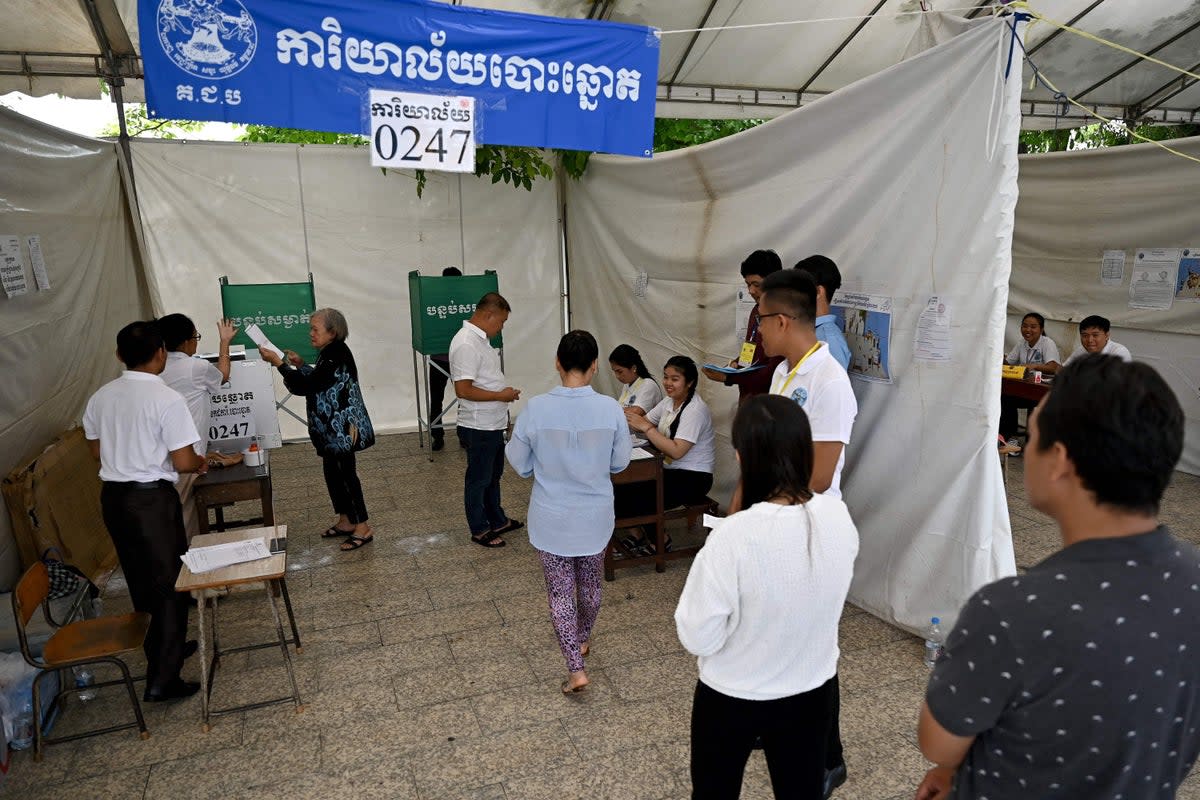
The rights of candidates to form political parties and contest the vote have also been restricted.
“The attempt to form and register the new opposition Candlelight Party was quickly quashed in what amounted to a politically-motivated decision not to allow their registration,” Ms Ferrer said.
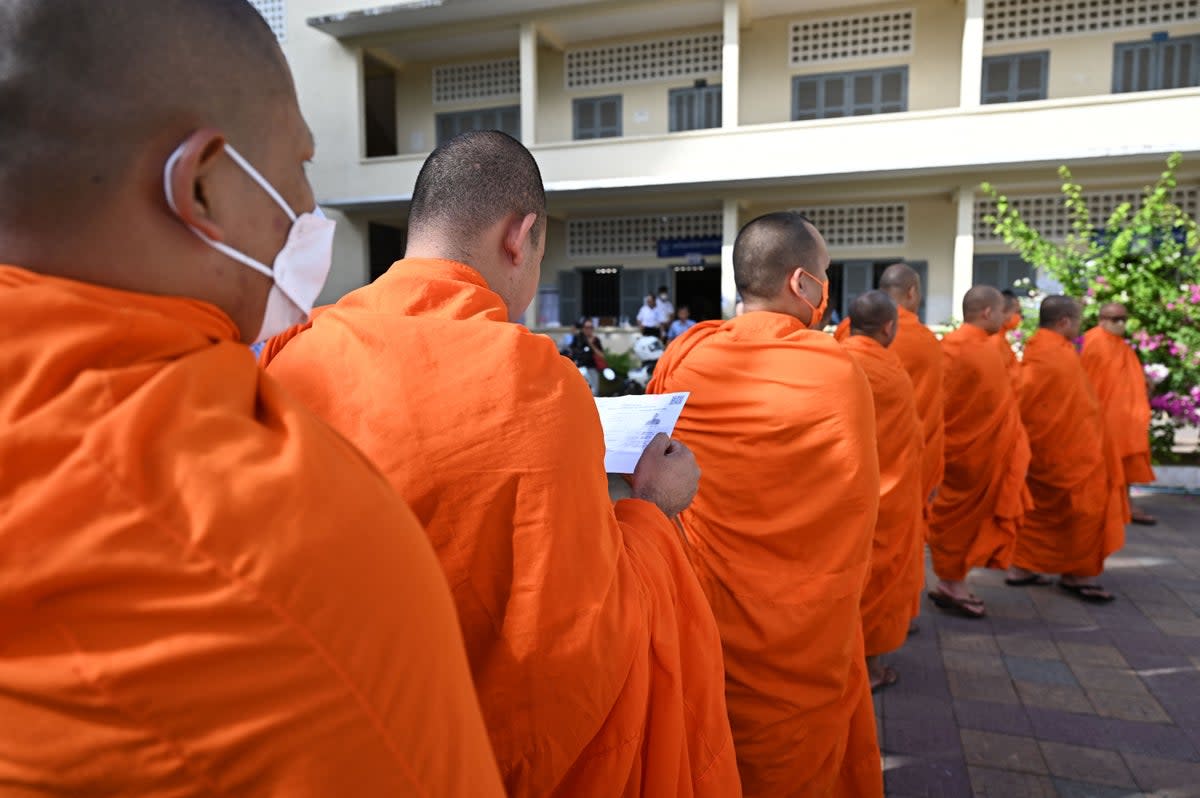
New regulations were introduced in the lead-up to the elections that included punishments for anyone calling for a boycott of the vote.
There are reports that some voters who simply declined to place their votes into the ballot box were also arrested on Sunday.
A voter in Phnom Penh was arrested after he cast his ballot but did not drop it into the ballot box and brought his ballot outside allegedly attempting to destroy the election. pic.twitter.com/6tzpqkhUjG
— Noan Sereiboth (@noansereiboth) July 23, 2023
“The National Assembly’s last-minute amendments to election law blatantly violate rights and should be rescinded and charges dropped against those who urged voters to boycott the polls or spoil their ballots,” Human Rights Watch said in a statement.
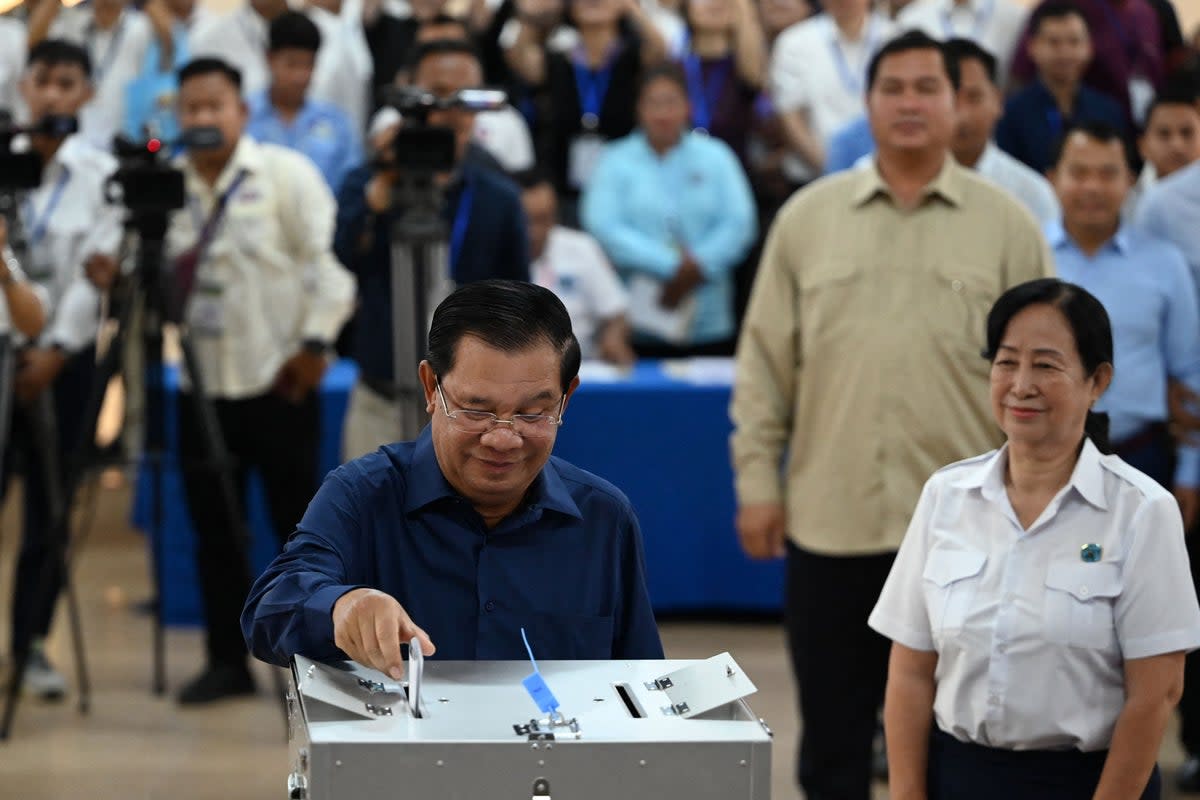
Hun Sen had suggested before the elections that he intends to pave the way for dynastic rule in Cambodia, handing off the premiership at some point in the next five-year term to his oldest son, Hun Manet, who is currently chief of Cambodia’s army.
“National Assembly’s last minute amendments to Election Law blatantly violate rights & should be rescinded & charges dropped against those who urged voters to boycott the polls or spoil their ballots” says @hrw as #Cambodia moves to prosecute activists! https://t.co/XIsuLw9fyw pic.twitter.com/XKrv5Y0TSc
— Phil Robertson (@Reaproy) July 23, 2023
Critics say this may happen as early as within the first month after the elections.
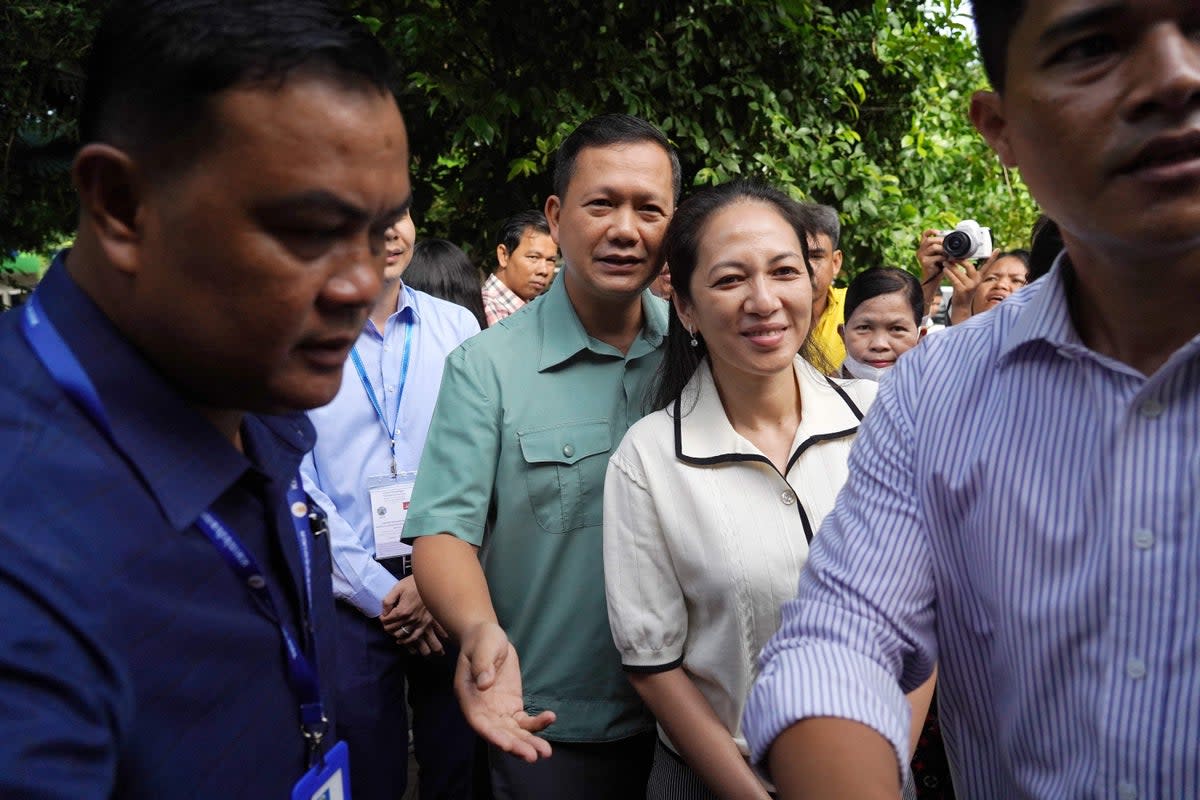
Despite Hun Manet’s Western education, with a bachelor’s degree from the US Military Academy at West Point and a PhD from the UK’s Bristol University, observers do not expect him to make any shifts from his father’s authoritarian policies.
This includes Hun Sen’s foreign policy positions, which have brought the country gradually closer to China.
Candlelight Party acting secretary general Kong Monika told CamboJA that he just voted in Prey Veng province.
His party has been disqualified from participating in the elections but an amended electoral law mandates that future candidates for office vote in this election. https://t.co/xyrHxLl9LO— CamboJA News (@cambojanews) July 23, 2023
“I don’t think anyone expects Hun Sen to sort of disappear once Hun Manet is prime minister. I think they will probably be working closely together and I don’t think that there is a big difference in their political outlook, including foreign policy,” Astrid Norén-Nilsson, a Cambodia expert at Sweden’s Lund University, told the Associated Press.






